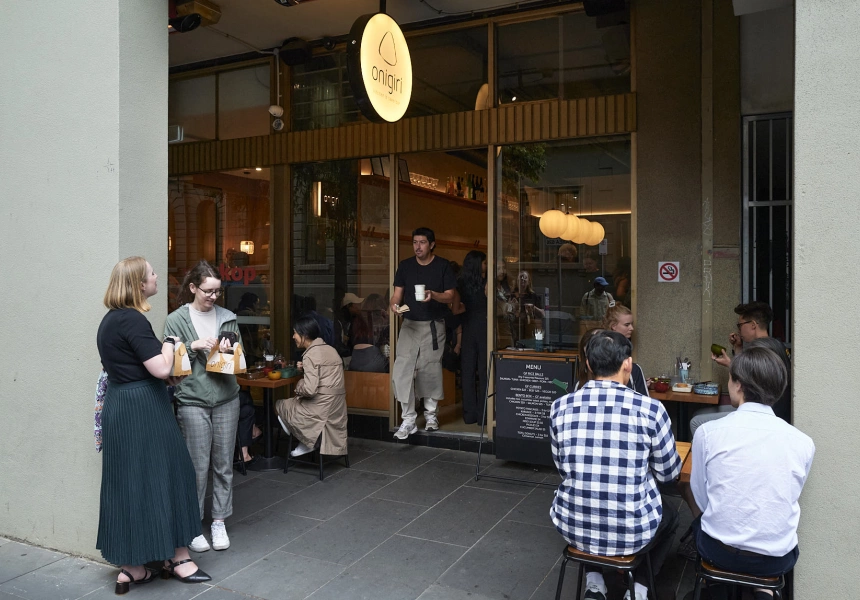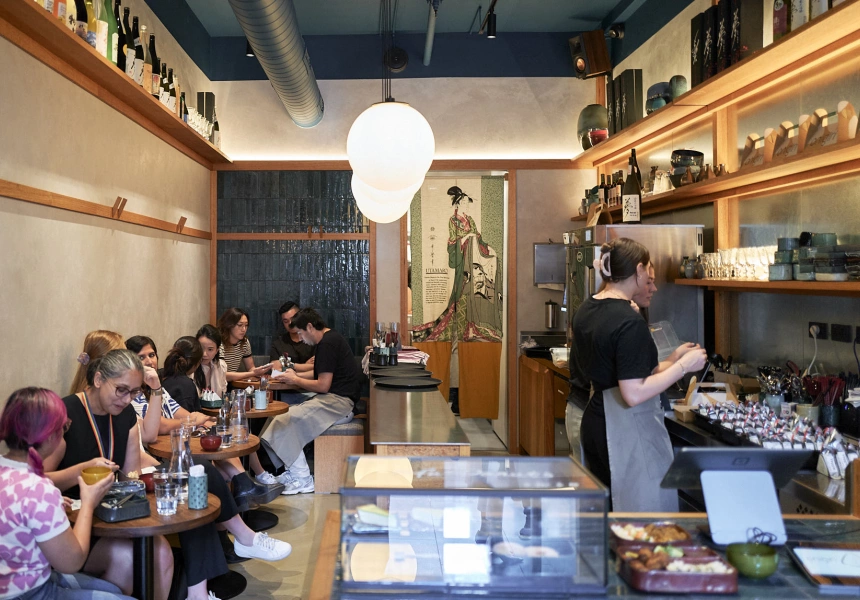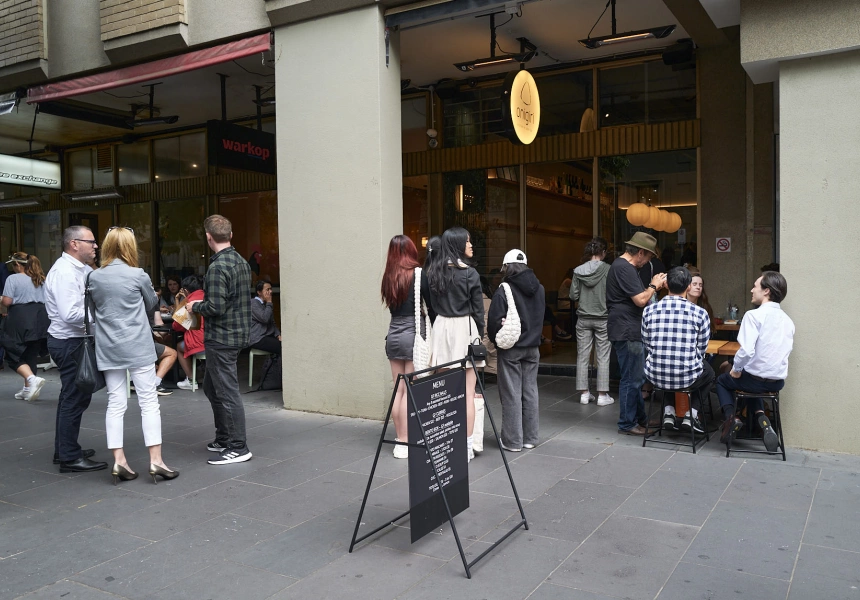Onigiri are Japanese rice balls – a convenience store and supermarket staple across Japan. Often shaped like a triangle with rounded edges, they’re filled with ingredients like tuna mixed with mayo, umeboshi (pickled plum) or salted salmon and wrapped in a piece of nori.
At Little Collins Street’s Onigiri Kitchen and Sake Bar, which opened in September, there are seven different types on offer. These include classics (like the aforementioned cooked tuna with mayo) and versions with less conventional fillings, like pulled pork with honey, garlic and ginger.
Each one is made fresh daily by a specialty machine imported from Japan. The machine prepares each onigiri with a layer of plastic wrapping between the rice and nori to retain the delicate seaweed sheet’s crispness. The onigiri are then stored at 15 degrees Celsius, which managing director Robert Clifford tells Broadsheet is the optimal temperature to maintain the fluffiness of the Akitakomachi rice (which comes from Japan’s Akita prefecture).
Get the best of Broadsheet first with Today – our free newsletter. Our expert editors curate the day’s most interesting and useful stories – new restaurants, must-see exhibitions, fashion trends, travel spots and more.
SIGN UPWhile they’re available to take away – and onigiri are a portable snack or lunch option to rival the sushi roll – Onigiri Kitchen and Sake Bar is designed for dining in. All ceramics are handmade at Ferndale Farm in the Dandenong Ranges and are made to match the bar’s interior, which recreates the look of a traditional Japanese eating house. Sleek and minimal wood-grain, cork, tile and steel finishes, coupled with a warm, muted autumnal palette, create a welcoming and relaxed feel. This calm atmosphere is enhanced by a record player at the front, where the team spins tracks by jazz greats, including Dizzy Gillespie, Count Basie and Duke Ellington.
Customers who enjoy their onigiri in-house can also sample the bar’s other namesake product – sake – imported directly from the brewers in Japan. Most of the selection is from a small family-owned sake brewery based in Niigata prefecture and all sake – from the premium Junmai Daiginjo, with its smooth finish and traces of sweetness, to fruit variants like plum, peach and apple – is served chilled to enhance the aromas and flavours.
There’s also a hot food menu that deviates from traditional Japanese cuisine by offering latkes and klops (German meatballs). In a cultural fusion, the apple sauce (which is often served with latkes) is made brighter and slightly zingy with the addition of yuzu. Klops are updated to be served on fresh, crunchy lettuce with a vinegar and chilli sauce that adds acidity and a sweet-savoury flavour.
Plus, you’ll find a range of teas sourced from the Umegashima region near the base of Mount Fuji – an area known for teas with a richer, rounder aroma than most produced in Japan, due to its high humidity and relatively short daylight hours.
Onigiri Kitchen and Sake Bar
15 Little Collins Street, Melbourne
No phone
Hours:
Mon & Tues 8am–5pm
Wed 8am–8.30pm
Thurs & Fri 8am–late
Sat 11am–late



